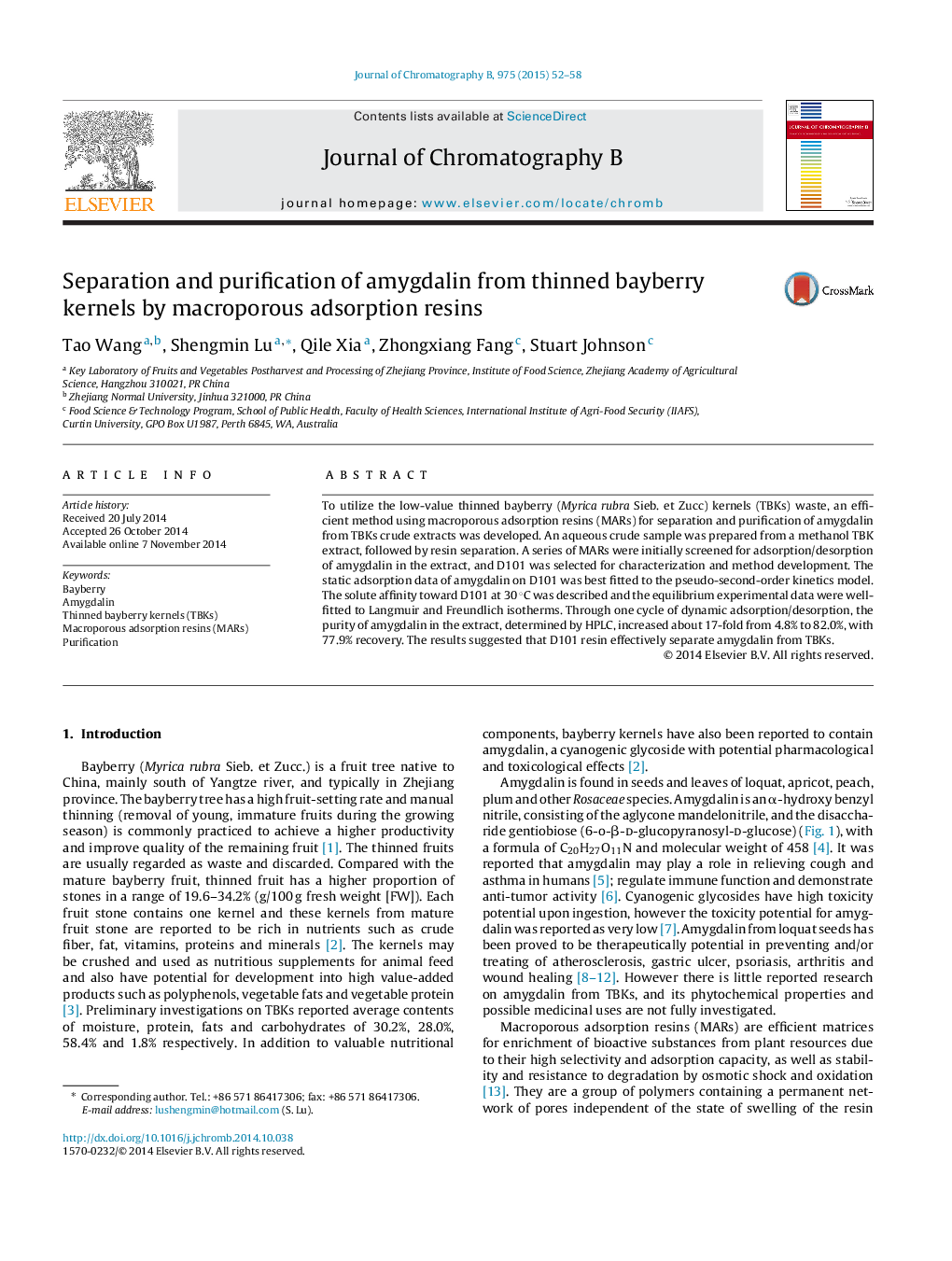| Article ID | Journal | Published Year | Pages | File Type |
|---|---|---|---|---|
| 7617417 | Journal of Chromatography B | 2015 | 7 Pages |
Abstract
To utilize the low-value thinned bayberry (Myrica rubra Sieb. et Zucc) kernels (TBKs) waste, an efficient method using macroporous adsorption resins (MARs) for separation and purification of amygdalin from TBKs crude extracts was developed. An aqueous crude sample was prepared from a methanol TBK extract, followed by resin separation. A series of MARs were initially screened for adsorption/desorption of amygdalin in the extract, and D101 was selected for characterization and method development. The static adsorption data of amygdalin on D101 was best fitted to the pseudo-second-order kinetics model. The solute affinity toward D101 at 30 °C was described and the equilibrium experimental data were well-fitted to Langmuir and Freundlich isotherms. Through one cycle of dynamic adsorption/desorption, the purity of amygdalin in the extract, determined by HPLC, increased about 17-fold from 4.8% to 82.0%, with 77.9% recovery. The results suggested that D101 resin effectively separate amygdalin from TBKs.
Keywords
Related Topics
Physical Sciences and Engineering
Chemistry
Analytical Chemistry
Authors
Tao Wang, Shengmin Lu, Qile Xia, Zhongxiang Fang, Stuart Johnson,
